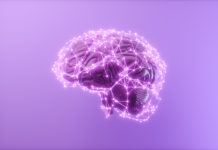Lorna Rothery interviewed Mr Haitham Hamoda, a Consultant Gynaecologist, Lead for the Menopause Service at King’s College Hospital, and Trustee and Past Chair of the British Menopause Society about the physical and mental health impacts of menopause and priorities for improving menopause care
Q. How do hormonal shifts during perimenopause and menopause affect brain functions such as mood, memory, and the risk of poor mental health?
During the menopause transition, oestrogen levels gradually decline rather than dropping abruptly. This decline is characterised by fluctuations, where hormone levels rise and fall over time. These variations significantly contribute to the accompanying symptoms of this transition. Different areas of the brain can be affected by these symptoms, and they may influence each other or occur independently.
During menopause, women often experience mood changes, anxiety, cognitive issues like memory recall difficulties, and brain fog. Hot flushes are also common and can significantly impact sleep quality. There’s a triangular relationship between sleep, mood, and cognitive function; one negatively affected area can influence the others.
Research indicates that a significant majority of women – estimated at 75-80% – experience symptoms during this time. Approximately 25% of women report no symptoms, while 25% describe their symptoms as severe. The remaining 50% experience symptoms that fall between these two extremes. Additionally, the duration of these symptoms can vary, with an average duration of around seven years. About a third of women may continue to have symptoms into their 60s and beyond.
It’s important to address women’s concerns about dementia risk during menopause, which typically occurs in their late 40s to early 50s. Cognitive symptoms related to short-term oestrogen deficiencies are common during this transition and are not necessarily linked to dementia, which is rare in this age group and usually arises later, in the 70s and 80s. Therefore, the situation surrounding cognitive health during menopause is quite different from that of dementia.
Q. How would you describe the level of awareness among patients and physicians today, and what impact does this have on accurate, timely diagnosis and treatment?
Awareness is crucial when it comes to understanding menopause. From a patient’s perspective, many symptoms can cause significant distress, not only because they are happening but also because individuals may not understand what is causing them. There are typical textbook scenarios, such as changes in menstrual cycles, forgetfulness, hot flushes, waking up feeling tired, and experiencing brain fog, which could lead someone to self-diagnose. However, symptoms often don’t follow the typical pattern.
For some women, their age might lead them to believe they are not experiencing menopause, especially if their periods remain relatively regular. Others may find that hot flushes and night sweats are not their primary symptoms. They might instead struggle with concentration, feel down, or lack motivation, and may notice a decline in their social activities.
It’s important to recognise that medical presentations can vary significantly from one individual to another. Therefore, helping women understand their experiences is vital. This information should be accessible before a woman finds herself in a challenging situation. There’s been a push for women’s health checks, with the hope that guidelines will suggest discussions about menopause from the age of 40. These discussions could clarify what to expect during menopause and how it might present, rather than waiting until symptoms arise.
There is also a need for education at the school level about menopause and the changes that occur during this transition. Not every woman experiences symptoms that significantly impact their quality of life, but a substantial number do. Raising awareness and providing accurate, evidence-based information is key in this process, mainly since social media can spread both accurate and inaccurate information. While some information may be well-intended, it can also contribute to confusion and misinformation.
Healthcare professionals also play a crucial role in this dialogue. When women have symptoms or concerns, they typically turn to their healthcare providers, such as their GP. However, the level of experience among GPs can vary. While many GPs are knowledgeable, there may be instances where the available expertise is limited. Therefore, it is essential to raise awareness at primary care level to ensure that individuals can seek proper assessment and care. The British Menopause Society has recommends that at least one healthcare professional in every practice should have a strong interest in women’s health, including menopause.
Q. What are some common barriers that women might experience that would prevent them seeking care?
People often blame themselves or their environment for their experiences. You might think, “I’m working long hours, I’m really stressed with work, and I go to bed late,” which is likely true. However, these symptoms are often multifactorial; they are not solely due to menopause or otherwise. It’s a combination of various factors.
Part of the challenge lies in recognising which symptoms are different from what you usually experience in your normal life. Additionally, access to support can vary. You might reach out to someone who isn’t as supportive or understanding as you’d hoped. This lack of awareness is not necessarily intentional; they may simply not recognise the importance of what you are going through and fail to guide you appropriately.
Moreover, socioeconomic factors play a significant role. Individuals from disadvantaged backgrounds often face additional challenges. For example, discussing menopause may not be encouraged in some local communities, or there may be social barriers that make it difficult to seek help.
It’s crucial to consider how information about menopause is made available. We need to ask whether electronic formats are suitable for everyone. Some people may have difficulty accessing digital information, may not own a computer, or may not be tech-savvy.
Q. What are the current research gaps or priorities for enhancing menopause care?
Menopause typically begins around age 51, with a range of 45 to 55. Many women in this age group are managing career advancements and increased responsibilities, while also facing challenges like children leaving home and caring for ageing parents. This can make balancing responsibilities difficult.
Supporting women during menopause at work is essential, and there has been growing discussion on the topic in recent years, attracting interest from men, women, and younger audiences.
However, there is still a need for a uniform national platform with consistent workplace policies. It’s important to establish minimum standards of support to ensure all women have access to necessary resources, creating a fair and universally acceptable framework for addressing these concerns.
Research shows that women’s health, particularly menopause, has historically been overlooked, indicating a significant need for further study in this area. Ongoing research is crucial to better understand various aspects, including the health implications beyond hormone replacement therapy (HRT).
Emerging evidence suggests that diet and nutrition, particularly concerning the microbiome, can influence menopausal symptoms and overall wellbeing. It’s important to understand the link between what we eat and these symptoms, even though accurately assessing it can be challenging. We often recommend a balanced, healthy diet and staying active, rather than relying on expensive supplements. Improving sleep patterns is also vital, with plenty of resources available on sleep hygiene.
Raising awareness and providing accurate information are essential for supporting women through menopause; the British Menopause Society offers valuable resources. Support is needed in primary care and workplaces, and these discussions should encompass all the aforementioned factors.











